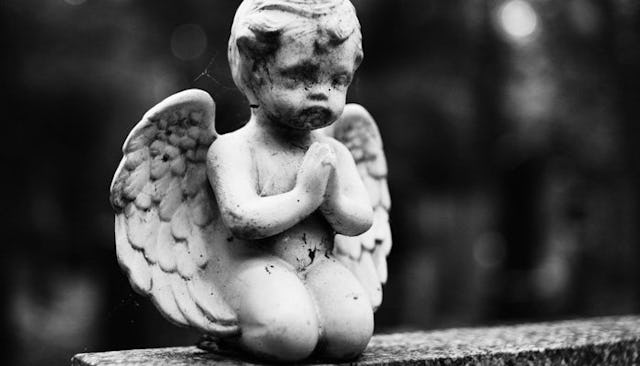The 8 Ways I Learned to Cope With The Loss Of My Son

I lost my son, Gus, to SIDS seven and a half years ago. It has been by far the hardest trial I’ve ever faced in my life, and recovering from his loss has been a challenge that will most likely be ongoing throughout my life. I’ve been doing a lot of thinking recently about what it was that helped me crawl out of the deepest hole of grief that has ever consumed me and how I became, once again, a functioning human being. This is what I’ve come up with:
RELATED: The Best Grief Podcasts To Help You Through This Difficult Time
1. Time: This is the hardest yet most effective tool for overcoming grief. It is amazing and frustrating at the same time. I remember the first week after my family left I was lying on the ground underneath our kitchen table, crying and wondering how long I would have to feel that way. In my case, it took about three years before the pain in my chest really started to ease.
2. Medication: It’s different for everybody, but medication can be a huge source of strength. I have to regularly see a psychiatrist and stay balanced. Whenever I think I don’t need the medication anymore, I have to remember that I’m only thinking that because the medication is working. The right antidepressants saved my life.
3. Writing: It’s hard to go to a place where you spend a concentrated amount of time remembering the pain and sadness, but it can be incredibly cathartic, too.
4. Therapy: The psychiatrist is not always enough. Having a yearly (or more frequent) therapy check-in with a counselor that you have a running relationship with can make such a difference on the road to recovery.
5. Distraction: Being sad can consume you if you don’t take the time to distract yourself from the pain every once in a while by reading a book, watching TV or going out with friends. It’s still something I use when absolutely necessary.
6. Allowance: There are times when it’s appropriate and accepted to think and be sad, and you have to embrace those times. I let every bit of emotion pour from my body until there’s nothing left. And it is so helpful.
7. Limitation: I learned early on what would trigger me into a vortex of sadness, so I knew I needed to steer clear of those things if I wanted to maintain my sanity. Boundaries were set in place for my own protection, and most of them I still abide by. You have to find what causes you the most pain and try to avoid those triggers.
8. Decision: After a certain amount of time (three years, in my case), being sad can get exhausting, and you have to make the decision to be proactive about overcoming the constant pain of losing a child. Once I made the decision to feel better, things really started to look up from there.
I don’t think there is every a point where someone is “recovered” from the death of a loved one. It’s a constant struggle, but you can survive it.
Related post: Bonding Over Twin Loss
This article was originally published on